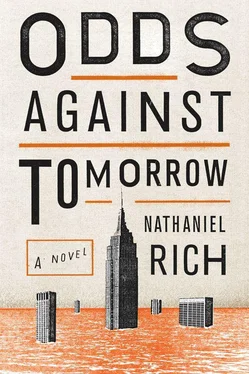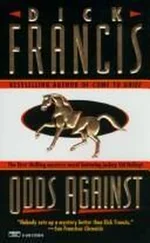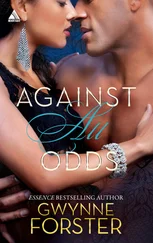Jane was still at the window, shaking her head.
“And we’ll need some of this,” said Mitchell, opening the freezer. He began removing the rubber-banded stacks of bills from their ziplock bags. Each stack contained two hundred bills. A stack of twenties therefore was four thousand dollars. A stack of hundreds was twenty thousand. He took two of each. Then a third stack of twenties for good measure. “Cold, hard cash,” he said from the kitchen. Jane didn’t seem to hear him. “Frozen assets.”
Jane’s voice, when she finally spoke, was altered; she sounded like a scared little girl.
“How long are we going to be trapped here?”
“They’re saying it might be a few days. But who knows?”
“You. You know. You’re the genius futurist, aren’t you?”
“No one can say how long it’ll take for the flooding to subside. Then they’ll have to restore electricity and test the water supply — that could take a while. A week? Months? I have enough food for five days, which is what the DHS advises. But I only planned for one.”
“What are you saying?” Her eyes were wide. She did not faintly resemble the impish, chattering woman he had met at the FutureWorld offices only a couple of weeks earlier. A fog passed over her, as behind a smudged window on an old elevator door when it clangs shut, leaving visible only a sad, vague blur where there was once a human face.
“I’m not saying you should leave,” he said. “That’s not my point. But buildings that have had structural damage can crumble any second. It’s as dangerous now as it was during the storm, if not more so. The roof above us might collapse. The floor could cave in.”
He scanned the room. Had he missed anything? The apartment was actually in pretty good shape, considering: couch, puddle, canoe, broken glass, pile of wood, cushions and blanket, chair, desk, television, bookshelf … canoe.
“No way,” said Jane, following his eyes. “You heard what the Coast Guard said: stay indoors.”
Mitchell closed his eyes, found the depth, plunged the air down. A peculiar calmness radiated through him. When he opened his eyes his small, safe, ugly apartment had been transformed into a prison. The Psycho Canoe, its paddles stowed safely beneath the seats — the idea of a water escape, an exhilarating flight to safety — that was freedom. For the first time in his life he could laugh at risk. What was risk, anyway? Risk was a canceled check, a fever dream that flees from daylight, a stubbed toe.
“If we wait here to run out of food, we might not have the strength to escape. We just missed a rescue boat. Who knows when the next one will come?”
He picked up the two Day-Glo-orange PFDs and held one out for her.
“Have you gone out of your mind?”
Mitchell nudged the PFD into her shoulder.
“No chance,” said Jane. “Let’s think about this rationally for a minute. First of all, that thing is an artwork. An attempt to capture the eternal unity of something or another.”
Mitchell stood smiling back at her like a maniac.
“You’re not acting like yourself.”
“Yeah, I know.” He gave a low laugh. “I know.”
2.
He heard a sound that was like continuous thunder and it became louder, roaring in his ears, a powerful, overwhelming noise, and he realized it was the silence, the colossal silence of the emptied city, that was making the sound.
The water was on fire. Low blue flames danced on the surface like floating bowls in a Thai river festival. He didn’t want to think about what was burning: sewer discharge, most likely, chemicals leached by ruptured pipes. But he was grateful for the fires. Without them it would be impossible to see the way. The morning fog had limited visibility to a fifteen-foot radius, the circumference marked by a heavy wall of white-blue mist, the color of skim milk. Out of this murkiness the larger shapes emerged first: the curved seat of a wicker chair; a strip of rubber insulation curled like an octopus’s tentacle; an inflated red yoga ball, like a candy apple; and the smooth black hull of a plasma television, bubbles coalescing and darting on its screen as it rocked in the current. Then the pigeon corpses. They were bobbing everywhere, lobster buoys in a Maine cove. And stationary objects — the studded plastic corner of a refrigerator door, a radiator’s white corrugated grill — protruded from the water like unnatural icebergs. On either side of the avenue, the steel beams of traffic lights were rotted trees bending into the river, their roots the bundles of severed copper cables. Where the floodwater reached its highest point it traced, along the sides of buildings, an uneven line of filth that continued the length of the avenue as far as they could see.
“Gentle Jesus,” said Jane. “Gentle Jesus, meek and mild.”
The reek of sewage was overwhelming at first, then faint, and then — most unsettling of all — they stopped noticing it. The surface of the water was coated with a foamy scum that had collected into it cigarettes, gum wrappers, straws, plastic cups, bottle caps, and whatever other debris resisted sinking. Mitchell tried not to let the toxic water touch his skin, but it couldn’t be avoided the way Jane paddled. She had obviously never been in a canoe before, and every clumsy stroke produced a coppery spray that whipped into Mitchell’s face. It was no use telling her to go more gently. When he did, her exaggeratedly careful strokes were so feeble that she might as well not have paddled at all.
Slowly they drifted uptown. Jane was in the bow, responsible for calling out directions. Mitchell was the sternman. He executed hard rudders and wide sweeps to pivot around obstacles. A foreign sensation pulsed through him. He thought it might’ve been triumph, but he didn’t have much experience with that, and he didn’t trust it.
“Right! Right!” shouted Jane. “Wait.”
“What is it?”
“Left. Hard left!”
The birds had returned, at least some of them. Seagulls, kingfishers, even a few pigeons. In the absence of traffic and human voices, their calls filled the air. The melodies weren’t particularly joyous — it was mostly a furor of confused squawking, their imbecilic brains having lost all sense of orientation. Still they were a reminder of a life that existed beyond the fog and the alien gray river. Or rather, if life did exist somewhere beyond the fog, the birds would be the first to discover it. Noah’s big idea: release a dove. If it didn’t come back, that meant it had found a place where the floodwaters had abated.
“Do you have any idea where we’re going?” asked Jane after they had paddled about two blocks north. It was difficult to tell where the street ended and the sidewalk began. The best indications were the silver caps of fire hydrants, which peeked out of the water like soldier’s helmets.
“We’re going to Bennett Park,” said Mitchell.
“Never heard of it. Is that the one near the United Nations?”
“No, it’s way uptown — on Fort Washington Avenue and One eighty-third. It’s the highest land in Manhattan. More important, it’s next to one of the narrowest sections of the Hudson. It’s also near the northern end of the island, so even if the current pulls us south as we cross the river, we should be able to make it to New Jersey before we’re carried off into the bight.”
They were quickly entering midtown, the beige apartment towers and redbrick tenements giving way to black towers of glass and steel. He was reminded of the drawings made by the early explorers of the Grand Canyon, the Colorado gushing between black vertical walls, the lone canoe in the foreground, its paddlers two insignificant specks.
“I’m not sure I follow,” said Jane. “I know you’re not saying that you want to canoe to New Jersey, because only a crazy person would say something so obviously crazy.”
Читать дальше












